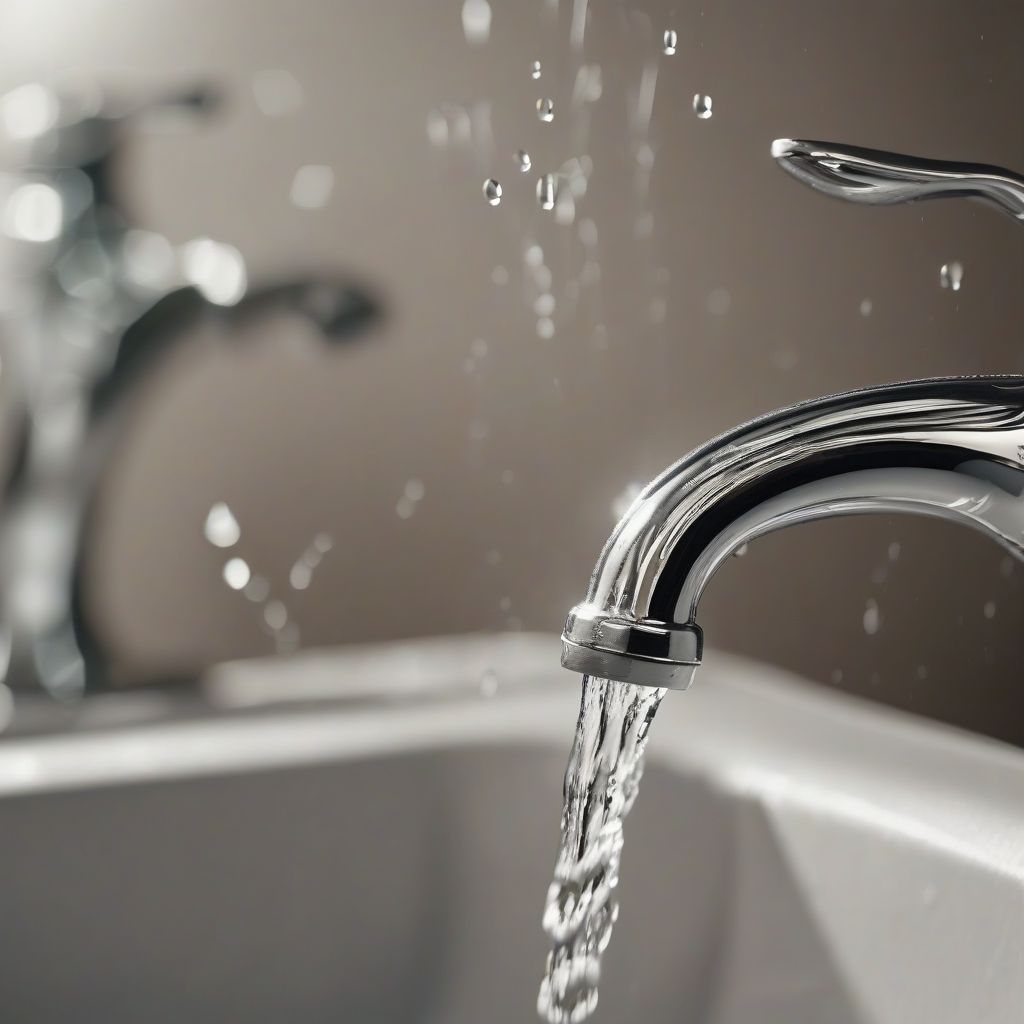Imagine this: you’re about to enjoy a relaxing evening at home when suddenly, you hear a strange gurgling sound coming from your bathroom. You investigate further, only to discover a growing puddle of water around your toilet. A plumbing nightmare has struck!
As a nutritionist and meal prep coach, I understand the importance of preventative care – and the same principle applies to your home’s plumbing. Just like a healthy diet keeps your body running smoothly, regular plumbing maintenance can prevent costly repairs and unexpected headaches down the line.
This article is your comprehensive guide to essential plumbing maintenance tips every homeowner should know. By implementing these simple strategies, you can keep your pipes flowing freely and avoid those dreaded plumbing emergencies.
Understanding Your Plumbing System: A Homeowner’s Guide
Before diving into the maintenance tips, let’s familiarize ourselves with the basic components of a typical home plumbing system:
Water Supply System:
- Main Water Shut-Off Valve: This crucial valve controls the water flow into your entire house. Knowing its location is essential for emergencies.
- Pipes: These intricate networks transport water throughout your home, with different materials like copper, PVC, or galvanized steel used depending on age and location.
- Fixtures: Your sinks, toilets, showers, and appliances rely on these essential components for water delivery and drainage.
Drainage System:
- Drain Pipes: Connected to each fixture, these pipes carry wastewater away from your home.
- Vents: These pipes allow air into the drainage system, ensuring proper water flow and preventing sewer gas buildup.
- Sewer Line: This underground pipe carries wastewater from your home to the municipal sewer system or septic tank.
Understanding how these components work together can help you identify potential problems early on and take preventative measures.
Essential Plumbing Maintenance Tips:
1. Know Your Limits: When to Call a Plumber
While some plumbing tasks are DIY-friendly, knowing when to call a professional is crucial. For complex issues like pipe bursts, sewer line backups, or gas leaks, contact a licensed plumber immediately. Attempting these repairs yourself can worsen the problem and pose safety risks.
“Remember,” says John Smith, a Master Plumber with over 20 years of experience, “plumbing problems rarely fix themselves. Addressing issues early on can save you time, money, and a whole lot of stress in the long run.”
2. Inspect for Leaks Regularly: A Stitch in Time Saves Nine
 Leaky Faucet
Leaky Faucet
Regular leak inspections are crucial for preventing water damage and saving money on your water bill. Check under sinks, around toilets, and near appliances for signs of leaks, such as:
- Water stains or discoloration
- Dampness or musty odors
- Dripping faucets or running toilets
- Low water pressure
Addressing these minor issues promptly can prevent them from escalating into major problems.
3. Master the Art of Faucet and Showerhead Maintenance
Faucets and showerheads are prone to leaks and mineral buildup. Regularly cleaning aerators and showerheads can improve water flow and prevent problems:
- Aerators: Unscrew the aerator from the faucet, disassemble it, and soak the parts in vinegar to dissolve mineral deposits.
- Showerheads: Remove the showerhead and soak it in a vinegar solution to remove hard water buildup.
4. Toilet TLC: Preventing Clogs and Leaks
Your toilet is one of the most frequently used fixtures in your home, making it susceptible to clogs and leaks. Follow these tips to keep it running smoothly:
- Avoid Flushing Foreign Objects: Only flush toilet paper and human waste.
- Invest in a Plunger and Know How to Use It: A plunger is your first line of defense against minor clogs.
- Check for Leaks: Inspect around the base of the toilet for signs of leaks.
5. Garbage Disposal Dos and Don’ts: A Guide to Responsible Use
Your garbage disposal is a powerful tool but requires responsible use to prevent clogs and damage.
- Do: Run cold water while operating the disposal. Grind small, soft food scraps.
- Don’t: Pour grease or oil down the drain. Grind fibrous foods like celery or potato peels.
6. Water Heater Wisdom: Extending Its Lifespan
Your water heater plays a crucial role in providing hot showers and clean dishes. Extend its lifespan with these tips:
- Annual Flushing: Sediment buildup can reduce efficiency and lead to premature failure. Flush your water heater annually to remove sediment.
- Temperature Check: Ensure the thermostat is set to 120°F to prevent scalding and reduce energy consumption.
7. Pipe Protection: Preventing Frozen Pipes in Winter
Frozen pipes are a homeowner’s worst nightmare, potentially leading to burst pipes and costly water damage. During colder months, take these precautions:
- Insulate Exposed Pipes: Apply foam insulation sleeves to pipes in unheated areas like attics, crawl spaces, and exterior walls.
- Keep Thermostat Consistent: Maintain a consistent indoor temperature, even when you’re away.
- Drip Faucets: During extremely cold weather, allow a slow drip from faucets connected to exterior walls to prevent freezing.
The Importance of Preventative Plumbing Maintenance
“Think of plumbing maintenance like regular car checkups,” explains Sarah Jones, a certified plumbing inspector. “Just like changing your oil and checking your tire pressure can prevent major car problems, simple plumbing maintenance can save you from costly repairs and headaches down the road.”
By implementing these simple tips and addressing minor issues promptly, you can keep your plumbing system running smoothly for years to come.
[amazon bestseller=”Plumbing”]
Conclusion: Flowing Towards a Worry-Free Home
Mastering these essential plumbing maintenance tips empowers you to become a proactive homeowner, safeguarding your home from potential plumbing disasters. By understanding your system, performing regular inspections, and addressing minor issues promptly, you can enjoy peace of mind knowing your plumbing is in top shape.
Remember, a little preventative care goes a long way. Now, go forth and conquer those plumbing challenges with confidence!
What are your go-to plumbing maintenance tips? Share your experiences and questions in the comments below!
